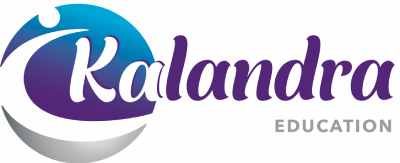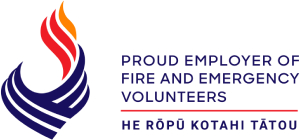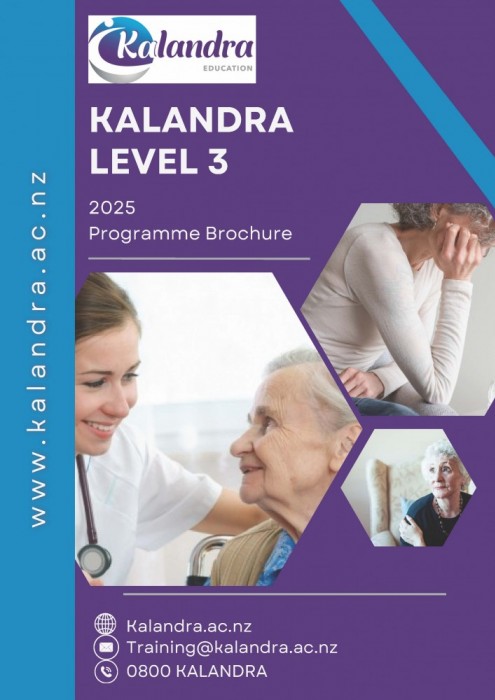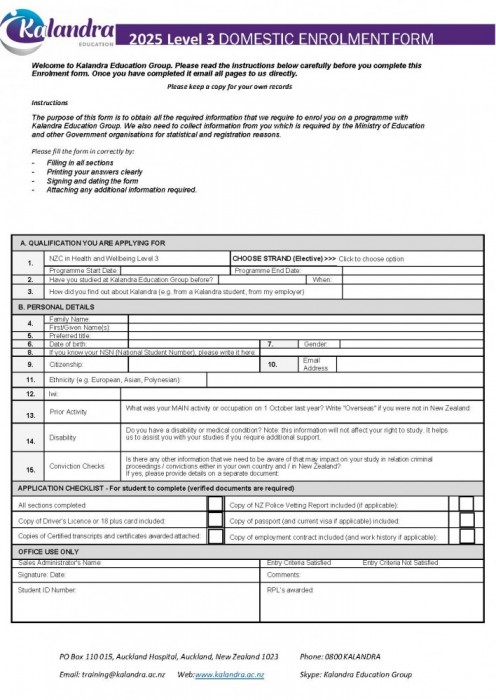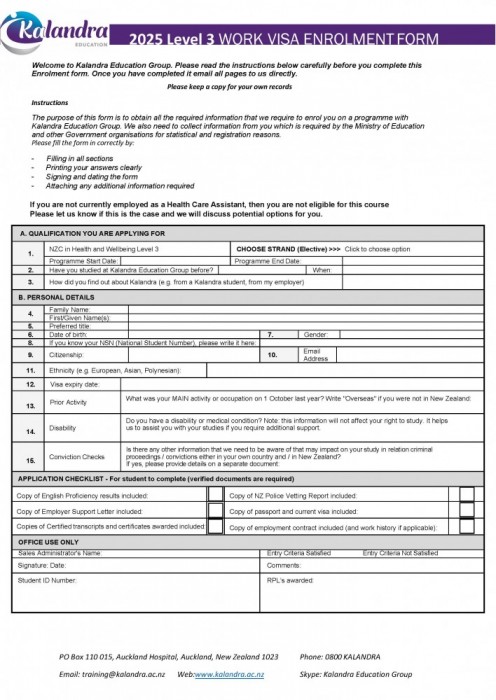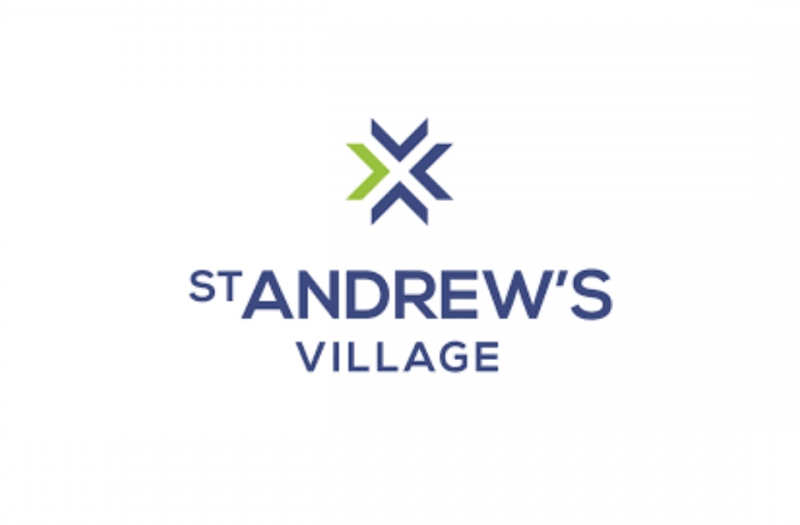Certificate in Health Assistance (Level 3) with strands in Palliative Care, Physical Disability Support, Intellectual Disability Support, Community Care, and Mental Health Support
Programme Start Dates:
Tuition Fee:
- New Zealand Citizens or Permanent Residents -
$3,070.00 Reduced in 2025 to $1535.00
- Work Visa Holders - $4000 (can be paid by instalments)
Note conditions apply to the following for nz citizens/permanent residents;
Fees free maybe available please check the website https://www.feesfree.govt.nz/
Student loans and allowances maybe available please check the website https://www.studylink.govt.nz/
Additional Costs (may occur):
Police Vetting $25
Device (see at the end of the page places in NZ you can purchase a tablet or computer from)
Programme Overview
NZQF: Level 3
Total credits: 71
Delivery length: 31 weeks (including 2 holiday weeks)
Total learning hours: 710
Directed online learning: 20 hours per week. The programme is delivered ONLINE with no time off work required. Students are provided with an individual learning plan and are supported throughout their study by experienced lecturers.
Work placement: Clinical hours in own place of work (as appropriate). A minimum of 5 hours per week.
At successful completion of the Certificate in Health Assistance (Level 3) students will be awarded the New Zealand Certificate in Health and Wellbeing (Level 3) with a strand Healthcare Assistance.
Programme Purpose
Advancement in technology and medical knowledge, combined with an improvement in general living conditions, has resulted in much higher numbers of older aged people and those living with chronic disease and/or disabilities. The fastest growing age group in the world, is 80 years or older. In New Zealand, the number of people aged 65 plus doubled between 1988 and 2016, to reach over 700,000. This number is projected to double again by 2046, causing growing concern about a deficit in the number of Health Care Workers suitably trained and able to provide the care required. UN statistics suggest that 15% of the world’s population live with a disability, that requires support.
Kalandra’s purpose of this Health Care Support programme, is to meet this rapidly increasing demand for qualified Health Care Assistants. Educating carers, who are able to identify and understand the needs of their clients, in order to provide the optimal care and support to enhance their daily living experience or health outcome.
There are growing numbers of vulnerable people living in the community and cared for by family or community organisations. Kalandra has identified a need for those caring for others in the community or their homes, would benefit from accessing training at this level.
The Certificate in Health Assistance (Level 3) with strands in Palliative Care, Physical Disability Support, Intellectual Disability Support, Community Care, and Mental Health Support programme is taught in six modules. (*subject to change)
Module One: Protection of the Vulnerable
This course introduces practices related to the care and protection of vulnerable people, as a Health Care Assistant. It allows learners to select person-centred approaches when dealing with people, or situations where challenging behaviours are encountered.
- Recognise vulnerability and abuse.
Module Two: Professional Expectations
This course introduces professional and communication practices necessary for operating as a Health Care Assistant. It allows learners to select and apply professional and ethical behaviours in their own undertakings, as a Health Care Assistant, in a health & wellbeing setting.
- Demonstrate and apply knowledge of professional and ethical behaviour.
- Demonstrate knowledge of advocacy and self-advocacy.
- Communicate to support people’s health and wellbeing.
Module Three: Risk Minimisation
This course introduces risk minimisation practices and approaches, in aged care, and allows learners to apply risk and safety minimisation strategies to commonly occurring issues in the health & wellbeing setting,
- Describe risks, impacts, and actions for falls, and minimise risk of falls.
- Demonstrate knowledge of procedures for infection control.
Module Four: Person-Centred Care Practices
This course introduces the theory and concepts associated with holistic person-centred care. It allows learners to explore, select and apply these different dimensions in their Health Care Assistant practicum setting.
- Describe a person’s holistic needs and the impact on their health and wellbeing.
- Support a person to meet personal care needs.
- Describe and apply a person-centred approach.
- Observe and respond to changes in a person.
Module Five: Safe Practices
This course introduces safe practices and approaches in aged care. It allows learners to explore approaches to pressure care and pressure injury care and apply them in practice.
- Describe incontinence and interventions to assist.
- Demonstrate knowledge of pressure injuries and pressure care.
- Knowledge of pre-packaged medicine.
- Support a person's wellbeing and quality of life in a health or wellbeing setting.
Module Six: Elective
This module introduces some specialised practices across a range of health care roles. It allows learners to explore common approaches in health care and select and apply those approaches in practice.
Elective One: Palliative Care
This module introduces the concept of caring for a person in their end of life journey focusing on person centred care and whanau support.
- Provide comfort cares, and report changes in the condition of a person with life-limiting condition/s.
- Describe the key principles of palliative care, and a support worker’s role in a palliative approach to care.
Elective Two: Physical Disability Support
This module is for those who are caring for clients or whanau member with a physical disability.
- Demonstrate knowledge of physical disability and the support needs of a person with a physical disability.
- Support a person with a physical disability to develop a personal plan to enhance their lifestyle.
- Identify services available to people with physical disabilities.
- Describe community values and attitudes and their impact on people with physical disabilities.
Elective Three: Intellectual Disability Support
This module introduces the basic care and support for those who have an intellectual disability. This could be in a community situation, home environment or supported learning environment.
- Demonstrate knowledge of intellectual disability and the support needs of a person with an intellectual disability.
- Support a person with an intellectual disability to develop a personal plan to enhance their lifestyle.
- Describe law in relation to intellectual disability and high and complex needs and legal services available to people.
- Describe community values and attitudes and their impact on people with intellectual disabilities.
Elective Four: Community Care
This module is designed to deliver training for those working with clients in their own home or other health care setting, in the community.
- Support, mentor and facilitate a person to maintain and maximise independence in a health or wellbeing setting.
- Support a person to use prescribed medication in a health or wellbeing setting.
- Recognise and report changes and risks for a person in a health or wellbeing setting.
Elective Five: Mental Health Support
This module is a steppingstone to further study in Mental Health and Addictions support programmes. It introduces the learner to mental health support strategies and health models for supporting those with mental health challenges.
- Describe factors that contribute to mental health wellbeing and mental health challenges.
- Describe interventions and models used when working with a person accessing mental health and addictions services.
- Support a person accessing mental health and addiction services to engage with and review local services and resources.
- Support a person to use prescribed medication in a health or wellbeing setting.
Programme Outcomes
Graduates of the programme will gain transferable skills & knowledge related to basic physiological, safety & belongingness needs of persons in health & wellbeing settings. Graduates will have an understanding of their roles, responsibilities & obligations and their duty of protection & care of the vulnerable person. They will be able to select and apply ethical and professional behaviours & effective communication whilst providing person-centred care under broad guidance, support and delegation.
Graduates will be able to apply the following skills and capabilities in a health care setting.
- Advocacy: Graduates will understand their role, responsibilities, obligations and duty of care, to protect and provide advocacy for the vulnerable person, in a health & wellbeing setting.
- Recognition of Need and Response: Graduates will be able to recognise signs of abuse, neglect and vulnerability in a health & wellbeing setting and respond appropriately.
- Professional Conduct: Graduates will be able to select and apply professional behaviour and ethical standards while working in a health & wellbeing setting.
- Person-Centred Care: Graduates will gain transferable skills and knowledge of the physiological, safety and belonging needs of persons in health & wellbeing settings and will be able to work as a Health Care Assistant under the direction and delegation of a supervisor.
- Effective Communication: Graduates will be able to provide person-centred care using effective and appropriate communication.
- Responsive: Graduates will be able to improve care and comfort cares provision by observing, recognising and responding to changes in the client's needs.
Programme Pathways
Employment Pathways: NZ Government Career Pathways Information
Graduates can be employed in roles such as:
- Health Care Assistant – Aged Care, Primary and Acute Care, Therapeutic Programme Care.
- Community Support Worker.
- Medical Practice Assistant, Dental Assistant.
- Homecare Support Worker / Caregiver.
- Hospital Orderly.
Education Pathways: Students who successfully complete the Certificate in Health Assistance (Level 3), with strands in Palliative Care, Physical Disability Support, Intellectual Disability Support, Community Care, and Mental Health Support, have met the requirements for entry into the New Zealand Certificate in Health and Wellbeing (Social and Community Services) (Level 4) with a strand in Mental Health and Addiction. It may lead on to further study in related health and wellbeing contexts such as the New Zealand Certificate in Health and Wellbeing (Advanced Care and Support) (Level 4), or in leadership and management.
Entry Criteria
New Zealand Citizen or Permanent Resident/Resident Visa holders:
- Must be currently employed in the Healthcare sector as a Health Care Assistant or in a similar capacity.
- The learner holds the New Zealand Certificate in Health and Wellbeing (Level 2) or the equivalent qualification or minimum 6 months health care work experience.
- Physically able to do the job.
- Willingness to work with the older person.
- Has the ability to complete course work and assignments, online.
Work Visa Holders (classed as International Students):
As per above, PLUS
- English Language Certification: General or Academic IELTS 5.0 overall (with no band less than 5.0) or an equivalent internationally recognised test. Certification must be no more than 2 years old and from one test.
- Support of your employer, to study this programme.
To Apply
NZ Citizens/Permanent Residents/Resident Visa holders: Complete this Application Form and email along with the following supporting documentation to: training@kalandra.ac.nz
- Current ID (including residency status if applicable) - we recommend a certified copy of your passport, birth certificate, or certificate of citizenship*
- Copy of current employment contract.
- NZ Police Vetting Report: must be no more than two years old and should be obtained by employer. If a new one is required, we can request one for you and in this case the submission cost is $25 plus GST and must be paid to Kalandra prior to the request submission.
Work visa holders: Complete this Application Form and email along with the following supporting documentation to: training@kalandra.ac.nz
*To be accepted as certified document(s), these now need to be signed and dated by a person authorised to take declarations. This could be a:
- Justice of the Peace (JP) - find a JP
- Lawyer
- Barrister
- Notary Public
- Court Registrar or Deputy Registrar
- Member of Parliament
Student Handbook: Click on this link to download the full copy of the Student Handbook 2024.
Graduate Testimonials
Read what some of our graduates think about studying at Kalandra.
- Julie Watt: "The online study meant I could manage the course in my hours after work. I stuck to my goal, of doing it for an hour each night after work and when I could in the afternoons on the weekends. The tutors were so supportive, and always responded quickly on email with help to my questions." Read more.....
- Maraea Tauhinu:"I have gained so much knowledge about Health and Wellbeing, Social and Community Services, and Mental Health in the Elderly..... I have greater understanding and compassion for elderly people and how to respect each person’s culture, privacy, values and rights, and the importance of confidentiality." Read more......
- Lois Filipi: "I really enjoy my job as a Health Care Assistant now because after studying at Kalandra, and getting so much support from my tutor, I know how to care for older people and give them the best care." Read more .....
Tuition is Online
It is required that you have internet and a device in order to complete your studies successfully. You need to be able to access: Facebook and our online learning platform. You must also undertake research online and produce documents using Microsoft Office - Word, Excel, PowerPoint etc.
Link to Mobile Compare which identifies internet providers and allows you to compare the options.
The following computer suppliers have competitively-priced example devices:
Last updated: 16 December 2024
Back to programmes
